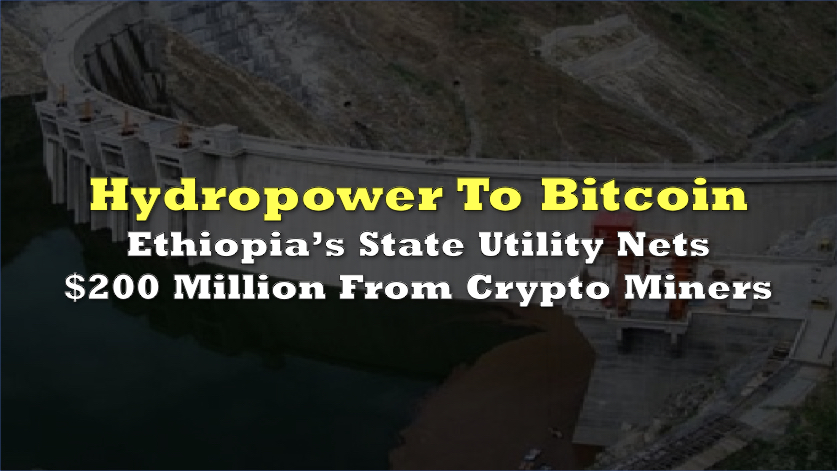Ethiopian Electric Power has transformed otherwise stranded hydropower into a $200 million cash injection by selling electricity to Bitcoin miners during the first half of 2025. The state utility routed energy that had been “wasted due to a lack of transmission infrastructure” into data centers that now make Ethiopia the world’s newest crypto mining hot spot.
“The lowest monthly income in the current year is $25 million, and the highest is $28 million,” EEP communications chief Moges Mekonnen said.
Six-month takings already eclipse the $55 million EEP earned across ten months in 2024 and blow past the utility’s earlier full-year projection of $123 million.
Whoa!
— Gridless (@GridlessCompute) July 4, 2025
🇪🇹 Ethiopian Electric Power says it has raised over $200 million from Bitcoin mining
The revenue was generated by diverting electricity to Bitcoin mining, which was otherwise wasted due to a lack of transmission infrastructure.
"The lowest monthly income in the current… https://t.co/CNLhJcqX6c
Cheap power
At roughly $0.032 per kWh, Ethiopia’s hydropower—90% of a 5,200 MW national stack—is among the cheapest on the planet. The Grand Ethiopian Renaissance Dam is steadily adding more water-powered capacity, further widening the surplus that transmission bottlenecks have left untapped.
Bitcoin miners, many displaced by China’s 2021 crackdown, now account for about 2.5% of global hash rate from Ethiopian soil.
A single $250 million deal with Hong Kong’s West Data Group exemplifies the scale: Project Mano, an Addis-based think tank, estimates that mining could add $2 billion to $4 billion to national GDP each year if current momentum holds.
For a country that defaulted on a $33 million Eurobond coupon in 2023, dollar-denominated electricity sales arrive as badly needed relief. Miners pay in hard currency, softening Ethiopia’s chronic FX shortage and giving policymakers an alternative to foreign aid.
Grid stress
The same industry that props up state finances devours as much as 8 TWh annually—about 30% of Ethiopia’s total generation, according to estimates circulating on X, at a time when only 55% of Ethiopians currently have household electricity. Critics warn that “digital gold” could deepen inequality if rural customers remain literally in the dark while foreign-owned server farms stay lit.
In terms of government regulation, a 2022 decree classifies Bitcoin mining as “high-performance computing,” insulating it from Ethiopia’s ban on crypto trading. Yet examples from Iran and Kazakhstan show how quickly policymakers can reverse course once rolling blackouts or political backlash emerge. What could be a surprise factor in the country’s recent rush is Ethiopia still lacks specific tax rules for crypto revenue, which could spell uncertainty for the industry.
EEP says it is plowing mining proceeds into new transmission lines that could reach the 40–45% of citizens still off-grid. Whether that build-out can keep pace with miners’ rising appetite is less clear.
Any future shortfall could push the country to burn fossil fuels, undercutting its mostly renewable profile.
Information for this story was found via Tekedia, Nanyang Technological University, and the sources and companies mentioned. The author has no securities or affiliations related to the organizations discussed. Not a recommendation to buy or sell. Always do additional research and consult a professional before purchasing a security. The author holds no licenses.









